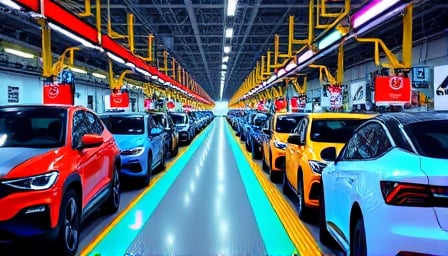Ford’s Financial Fiasco: A Perfect Storm of Recalls and Regulatory Headaches
Ford Motor Co is staring down the barrel of a financial crisis, courtesy of costly recalls and customer satisfaction claims that are bleeding the company dry. The warranty costs associated with these issues are nothing short of staggering, with one of the company’s most popular cars bearing the brunt of the damage.
- The financial burden is substantial, with no end in sight.
- The company’s decision to delay the launch of two new electric vehicles until 2028 is a clear indication of the financial strain it’s under.
- The delay of the pickup truck and van models is a strategic move to adapt to changing market trends and consumer preferences, but it’s also a tacit admission that the company can’t afford to take on the costs associated with these projects.
A Shift in Focus: From Luxury to Affordability
Ford’s decision to focus on smaller and more affordable electric models is a clear response to the changing market landscape. The company is recognizing that consumers are increasingly looking for more affordable options, and it’s making a bold move to capitalize on this trend.
- The shift in focus is a strategic decision to stay ahead of the competition.
- By targeting the mass market, Ford is hoping to increase its market share and drive revenue growth.
- However, this move also raises questions about the company’s commitment to innovation and its ability to deliver on its promises.
The Bigger Picture: Trade Tensions and Tariffs
The global automotive industry is facing a perfect storm of challenges, including ongoing trade tensions and tariffs imposed by the US government. This has led to a significant hit to the bottom line of major carmakers, including Toyota, which has lowered its annual guidance due to the impact of US tariffs.
- The trade tensions are having a ripple effect across the industry, with companies struggling to adapt to the changing landscape.
- The tariffs imposed by the US government are a major contributor to the financial strain faced by carmakers.
- The industry is in dire need of a solution to these trade tensions, or else the consequences will be severe.
